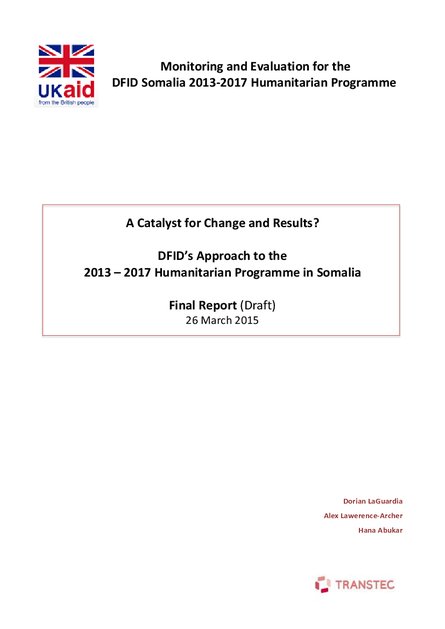
The United Kingdom (UK) Department for International Development’s (DFID) has conducted an initial programmatic evaluation of the Somalia 2013 – 2017 Humanitarian Programme. The scope of this Evaluation is from the establishment of DFID’s Business Case to December 2014. While originally conceived as a “Real time Evaluation” in the Terms of Reference, the Evaluation went beyond this scope in the data collected, its analysis, and how these pinpoint issues for both short-term and long-term programming.
The Evaluation’s objective is review how DFID has designed and established the Programme and how partners have worked together (and with DFID) to develop designs and activities. This is important given that many partners have come together specifically as part of DFID’s multi-year funding approach, specifically the Strengthening Nutrition Security in South Central Somalia (SNS), Building Resilient Communities in Somalia (BRCiS) consortium, and the United Nations Joint Resilience Strategy that includes FAO, UNICEF and WFP. These and related activities, especially regarding partnership, knowledge sharing, flexibility and adaptability, and other organisational dynamics have a direct influence on how partners work individually and collectively toward results.
